Reading skills development Normal Worksheets for Ages 3-7
5 filtered results
-
From - To
Introducing our "Reading Skills Development Normal Worksheets for Ages 3-7", designed to inspire young learners on their journey to literacy. These engaging worksheets support essential reading skills like letter recognition, phonics, vocabulary, and comprehension in a fun, interactive format. Tailored for children aged 3 to 7, our resources are perfect for parents and educators aiming to enhance early reading abilities. Each worksheet features colorful illustrations and age-appropriate exercises that encourage practice through play, making learning enjoyable for children. Empower your child’s reading development and watch their confidence grow with our carefully crafted worksheets, available now for easy download and use at home or in the classroom!
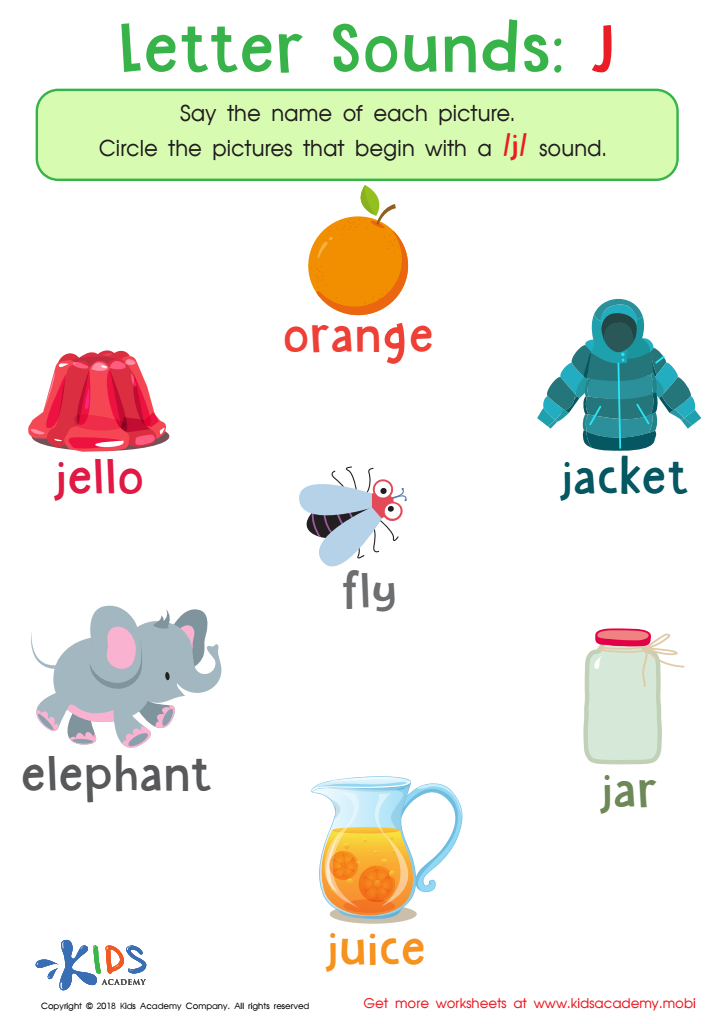

Letter Sounds: J Printable Worksheet
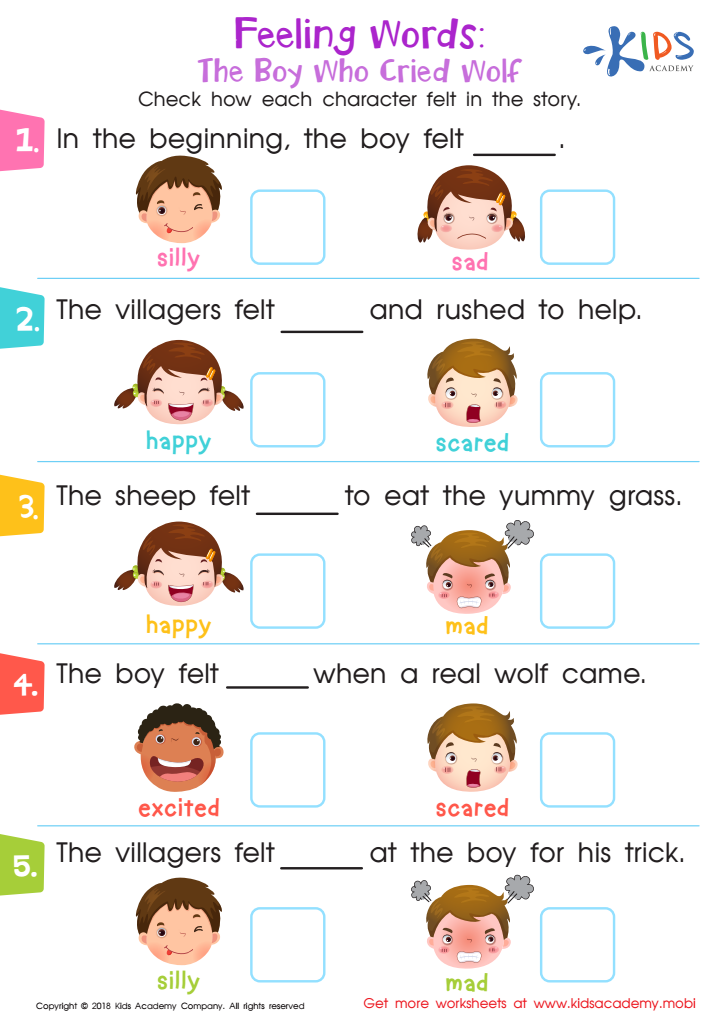

Feeling Words: The Boy Who Cried Wolf Worksheet
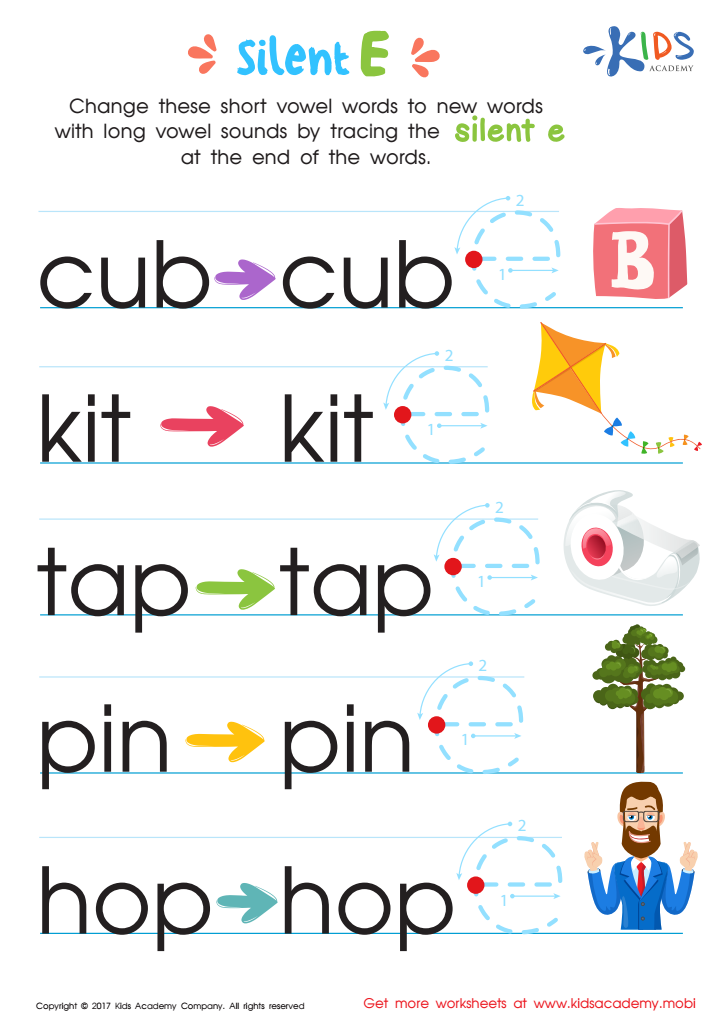

Silent E Words Worksheet
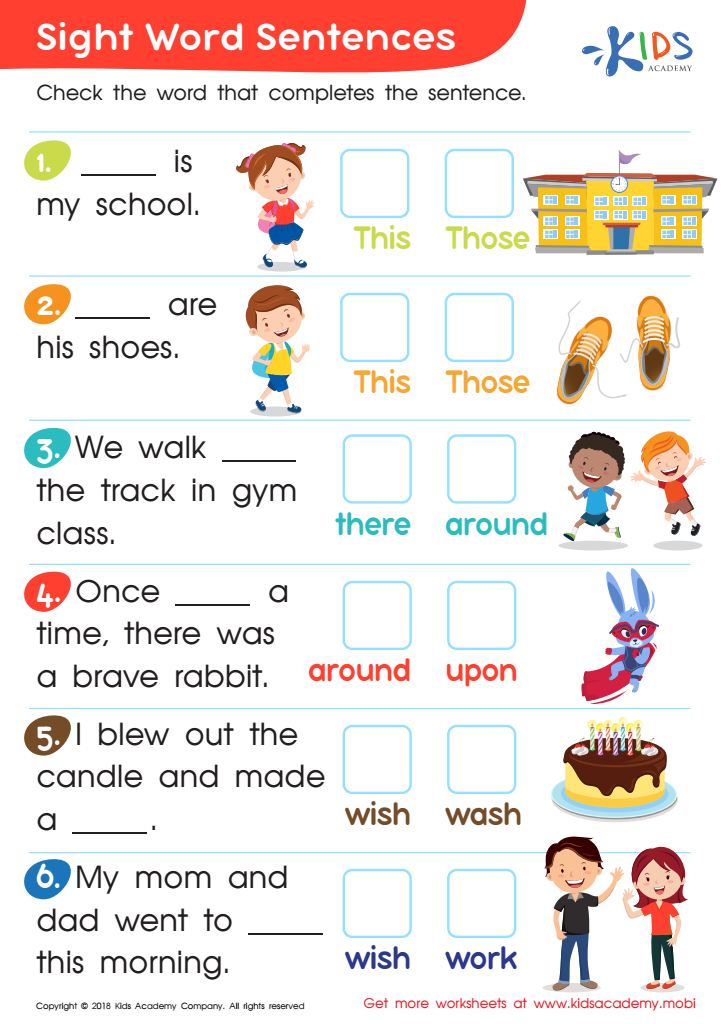

Sight Word Sentences Worksheet
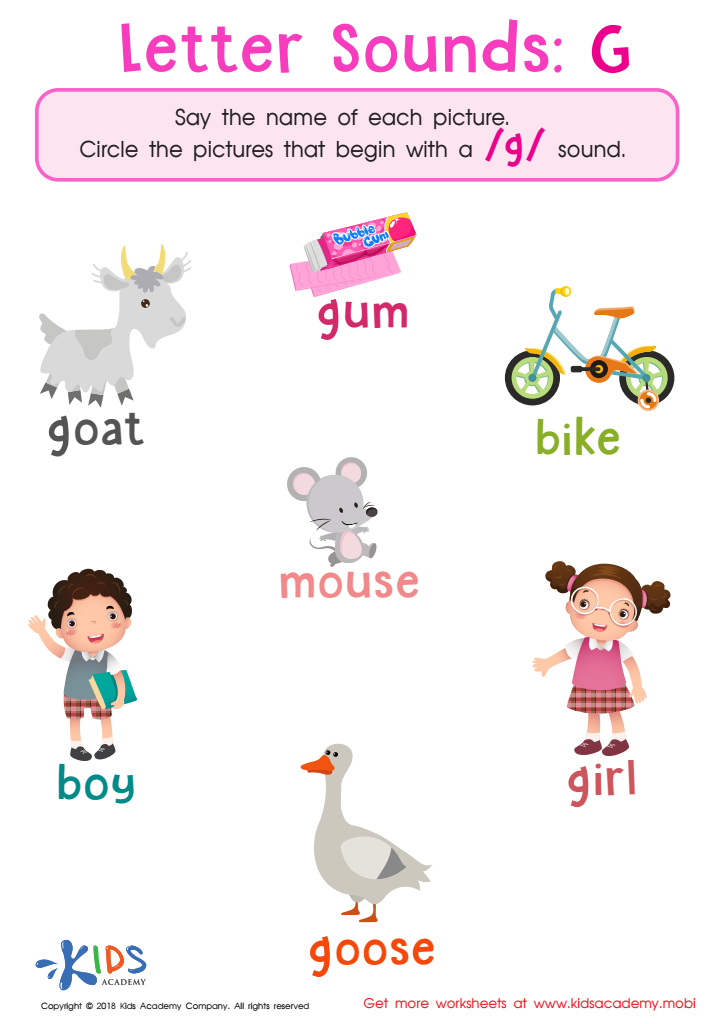

Letter G Sounds Worksheet
Parents and teachers should prioritize reading skill development for children aged 3-7 because these foundational years are critical for cognitive and language development. Early reading experiences shape a child's understanding of the world, enhance vocabulary, and foster critical thinking skills. Engaging children in reading nurtures their imagination and creativity and strengthens their ability to express thoughts and ideas verbally and in writing.
Additionally, strong reading skills lay the groundwork for academic success. Children who develop literacy skills early in life are more likely to perform well in school, making it easier for them to grasp more complex subjects as they grow older. Moreover, reading helps to improve concentration and listening skills, both of which are essential for overall learning.
Furthermore, early literacy experiences promote a love for books and learning, creating lifelong readers who are more likely to engage in continuous self-education and discovery. Establishing a nurturing reading environment encourages parent-child bonding and provides a safe space for children to explore new concepts and ideas. Therefore, focusing on reading skills development during these formative years is crucial for children's emotional, social, and intellectual growth, setting the stage for a successful academic journey and beyond.
 Assign to My Students
Assign to My Students















